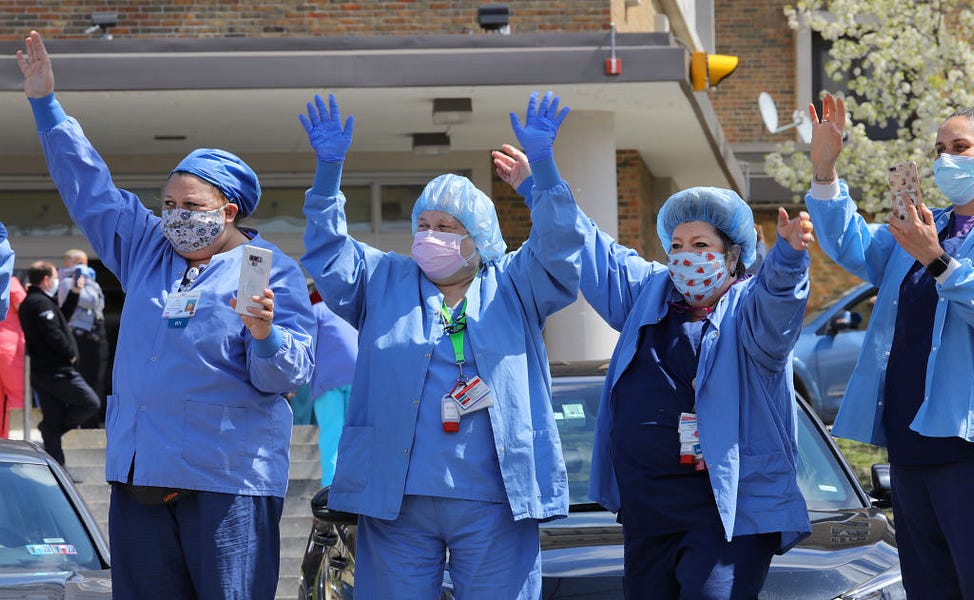“Where were you when …?”
We’ve all asked this sort of question. Where were you when the planes hit the Twin Towers? Where were you when you heard JFK was shot? Where were you when you heard Kobe Bryant died?
The unstated thing about such questions is the assumption that you were a spectator of one kind or another when something momentous happened. And for most Americans, that’s how we experience historic events—as spectators.
The 9/11 attacks were a huge event for most of us who were alive then. But how many lives did 9/11 directly and meaningfully affect, particularly outside New York and Washington? Not many in the grand scheme of things. (Hassles at airports don’t count.)
The same goes for wars. Less than 1 percent of Americans are in the military, and less than 10 percent of the adult population has ever served. Even among those who wear a uniform, only a fraction see sustained combat.
Most historic events of the last half-century, even if significant and tragic, are remembered largely as moments on television. Despite the tendency of politicians to say, “If we can put a man on the moon… ,” the number of people among that “we” is only in the thousands. The rest of America experienced it vicariously on TV.
This isn’t to minimize the importance of those events or the emotional effect they had on society. The Cuban Missile Crisis directly involved a small number of players, but millions or even billions of people felt they had skin in the game.
There’s a huge psychological difference between watching and participating, and I don’t think anyone is appreciating the difference. For decades after the Great Depression and World War II, the question wasn’t “Where were you …?” It was “What did you do?” or “What happened to you?” During World War I, not everybody served, but nearly everybody knew someone who did and felt the effects of war mobilization—the censorship, the hysteria, the rationing of food, etc.
The consequences of those shared experiences were profound, changing our politics and culture in countless ways.
This pandemic is the first event in my life that approaches anything like that. And it’s going to get much more intense before it’s all over. A recent NBC News/Wall Street Journal poll found that 59 percent of Americans don’t know anyone who has contracted COVID-19. A week prior, the same pollsters reported that 70 percent of Americans didn’t know anyone who’d been infected. If even the rosiest predictions are accurate, it won’t be long until every American knows someone who contracted the virus, and perhaps someone who died from it.
How much of the political squabbling right now is attributable to the fact that many of the people protesting in relatively unscathed regions are still watching this pandemic unfold as an event on TV and not as a menace in their own lives? It’s understandable that if you don’t know anyone suffering from COVID-19 or helping those suffering from it, you might feel that stay-at-home orders are an overreaction.
But that’s probably not going to last, particularly if the experts are right that we’ll see a major resurgence in the fall.
Whether the lockdowns are warranted in every corner of the country is a different conversation. I think there are good arguments (and bad ones!) on both sides of those debates. But if everybody eventually knows somebody who has died, or nearly died, in this pandemic, the conversations to come are going to be very different.
Already, the economic calamity the pandemic has caused is guaranteed to blow up a lot of the comfortable assumptions that have defined the contours of our politics for the last two decades.
Consider immigration, which has roiled our politics for so long. Whatever your position is on the issue, the old equation has new variables. In a country with millions out of work, dismissing some work as “jobs Americans won’t do” may well sound offensive (and untrue) in ways it didn’t before. As agonizingly slow as the process already feels, it’s a sure bet that America and the developed world will emerge from the pandemic far sooner than poorer nations. Inviting immigrants from places where the virus is still thriving—regardless of whether you think it’s right or wrong—will simply have a very different political resonance than it did two months ago.
That’s just one obvious example. There are far more unknown unknowns waiting for us in the years ahead, because we’re about to enter an era when every single American can start a conversation by asking “What did you do?” or “What happened to you when …?”
Photograph of health care workers by Pat Greenhouse/Boston Globe/Getty Images.







Please note that we at The Dispatch hold ourselves, our work, and our commenters to a higher standard than other places on the internet. We welcome comments that foster genuine debate or discussion—including comments critical of us or our work—but responses that include ad hominem attacks on fellow Dispatch members or are intended to stoke fear and anger may be moderated.
You are currently using a limited time guest pass and do not have access to commenting. Consider subscribing to join the conversation.
With your membership, you only have the ability to comment on The Morning Dispatch articles. Consider upgrading to join the conversation everywhere.